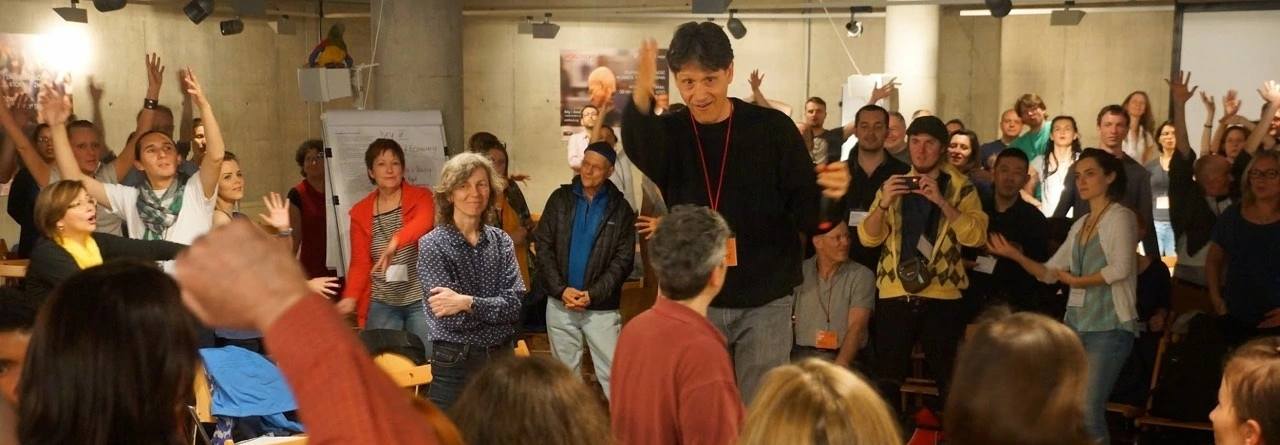
Conflict Facilitation
Looking around our world, we see staggering diversity. This causes problems and conflicts, and also beauty and richness. And inside of each of us is an amazing inner diversity; many things inside of us are in conflict with one another. How we get along with outer and inner diversity is perhaps the central issue of our time. If we can’t get along with our own inner diversity, how will we get along with the diversity outside of us? And visa versa!
Worldwork is the application of Process Work to interpersonal, group, organizational, community, political and world conflicts. Worldwork has a rich and powerful group of methodologies for working with this inevitable aspect of life. They are connected by some basic principles that are outlined below.
DEEP DEMOCRACY
Arnold Mindell developed the idea and practice of Deep Democracy. When there is a conflict or a diversity problem, Deep Democracy suggests that we let the different sides express themselves and interact with each other. This includes giving the different roles, thoughts, points of view, feelings, and diverse inner experiences a place where they are welcome and can interact with each other. Out of that interaction, the wisdom of the group, organization, or individual can arise, as well as connection, community, and creative solutions. Whether working with outer diversity or inner diversity, Deep Democracy is transformative.
RANK AND PRIVILEGE
Understanding of the dynamics of rank and privilege are key to facilitating many conflicts. I’d like to offer a few ways to learn about those dynamics.
First is a short video about Rank and Privilege in Macedonia. As you watch, please remember that these dynamics are the same everywhere, whether in the Balkans, the US, or around every kitchen table.
If you’d like a more theoretical explanation of rank and privilege, here’s a handout from a Worldwork seminar in Warsaw, Poland, where 500 people from over 40 countries gathered to learn together and work on the conflicts of our times. I had the good fortune to co-teach the day on “Rank, Privilege, and Economy” together with my friends and colleagues Alexandra Vassiliou, Lukas Hohler, and Stanya Studentova. Thanks for their permission to reproduce our handout here.
No understanding of rank and privilege is complete unless you work on your own rank and privilege dynamics. If you have a moment, please try this inner work that Alexandra, Lukas, Stanya and I developed about rank and resources. We hope you enjoy it. (Thanks again, team!)
LIVING OUR VISION
When working with conflict and tension in organizations, one important Process Work principle is getting in touch with the essence of an organization. (This is also true for groups and communities.) Often this essence can be found right there on an organization’s website, in the vision and mission statements. Process Work helps organizations get back in touch with their vision. The vision and mission are important for the organization’s work in the world, and equally important within the organization. It is refreshing and enlivening for an organization to live its essence more congruently.
In order to do that, a facilitator needs to value both the consensus reality of the organization, and notice the dreamlike aspects of what is happening. Let’s imagine, for example, that we are an organization that takes care of the environment. Yes, let’s be stewards of the outer environment, and work for sustainability in the “real” world. At the same time, let’s explore how to take care of the space between us, the atmosphere we breathe in our organization. How can we create a sustainable way to work that takes care of the inner environment of our organization, and the inner environment of our workers? When we are able to do all of that, then we are deeply living our vision, and connected to the essence of our organization.
These are a few basic ideas about Worldwork, conflict facilitation, and organizational work. For more information, check out the Links and Resources page.